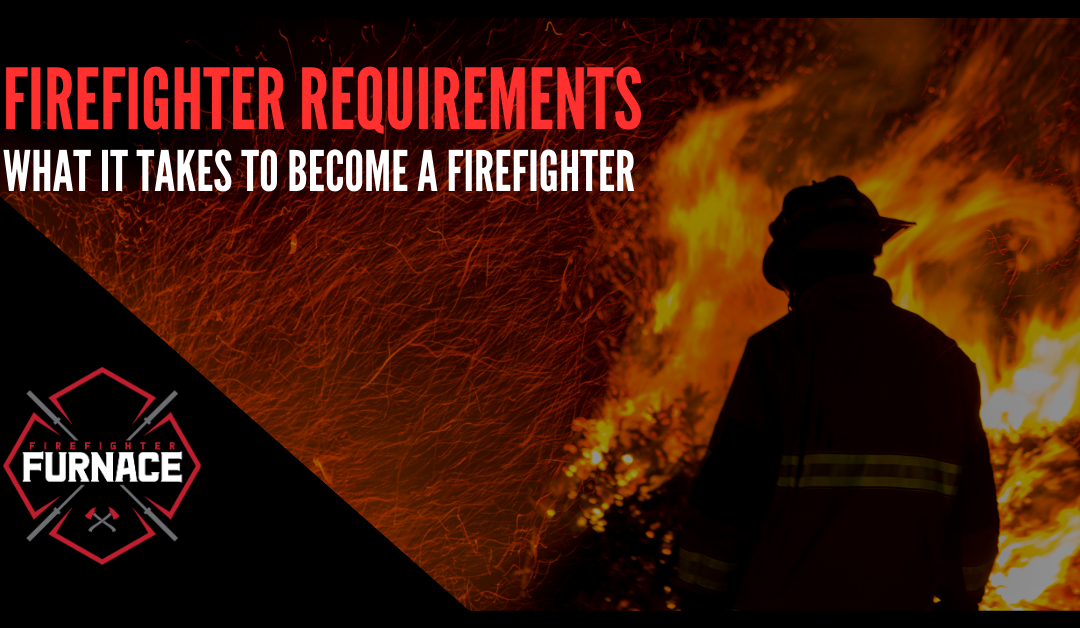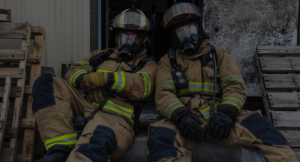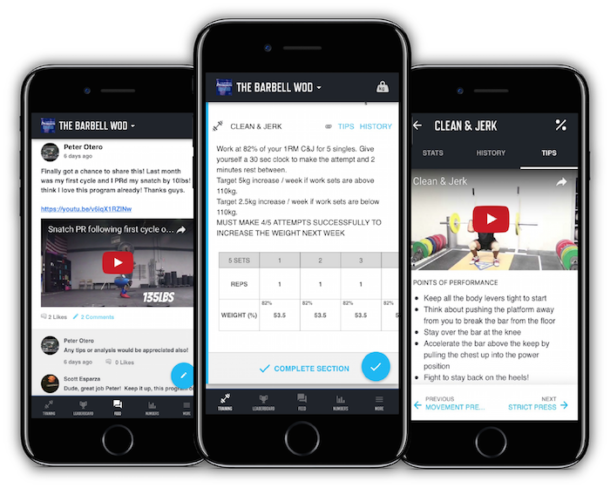Becoming a firefighter is a journey. While you may meet certain initial firefighter requirements, this isn’t a job that you can simply start doing right off of the street. Instead, the path to becoming a firefighter takes hard work, dedication, and focus, as well as a healthy dose of time.
If you want to become a firefighter, here’s what you need to know about the firefighter requirements.
Basic Firefighter Requirements
Finding out if you meet the basic firefighter requirements happens fairly early on in the process. Usually, you’ll undergo various kinds of prescreening, all of which are designed to determine if you’re potentially a great firefighter candidate.
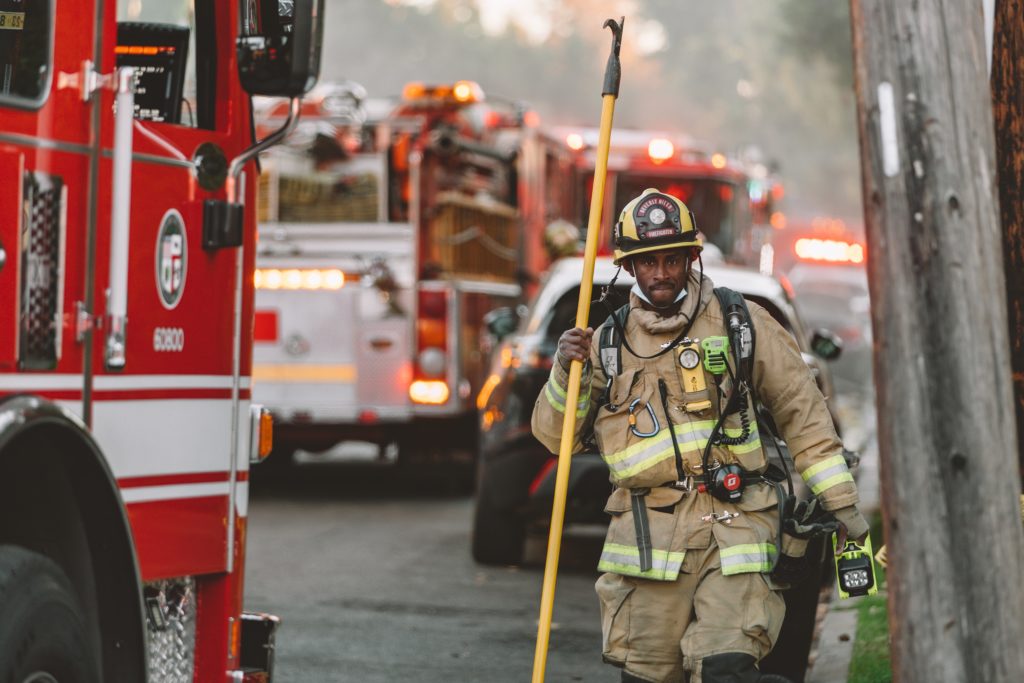
Age-Related Firefighter Requirements
There are quite a few basic eligibility requirements that all aspiring firefighters have to meet. First, there are age requirements for new firefighters.
While you may be able to start with some junior-level training a bit earlier, you have to be at least 18 years old to become a full-fledged firefighter. Additionally, you typically have to be below a certain age – typically somewhere around 28 to 35, depending on the department – to be eligible.
Health and Psychological Firefighter Requirements
There are also health requirements. Certain medical conditions – ranging from cardiovascular to musculoskeletal and from vision to neurological – may make you ineligible.
Firefighting is also incredibly stressful. As a result, a psychological exam is part of the screening process. Your mental and emotional stability will both undergo scrutiny, ensuring you can handle the stresses of the job.

Background, Credit, and Driving Record Requirements
Firefighters need a valid driver’s license. A good driving record is also essential, so even a person with a license might be disqualified if their record shows numerous infractions or accidents.
While some past criminal convictions may not be an issue, others will be. Felonies are typically disqualifying, as well as select misdemeanors. At times, a dishonorable discharge from the military may also prevent someone from being eligible.
Firefighters also have to have their financial lives in order. Usually, a credit check is part of the screening process, including a look at your history and credit score.
Character-Based Requirements
Ultimately, firefighters have to exhibit strong character. As a result, certain kinds of social media behavior may prevent you from becoming a firefighter. Your profiles may be screened for inappropriate, questionable, controversial, illegal, or embarrassing content to determine if you meet the standard.
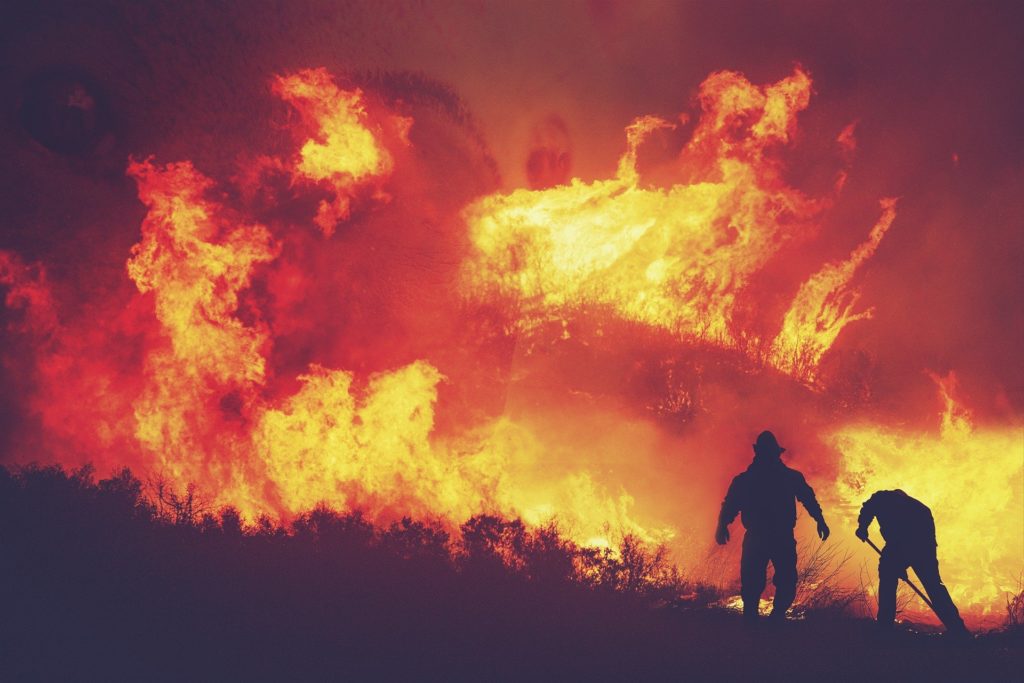
Educational Requirements for Firefighters
Generally, firefighter candidates need at least a high school diploma or GED. However, many aspiring firefighters also go further. Some pursue degrees in fire science. Others get certified as Emergency Medical Technicians (EMTs) or Emergency Medical Technician Paramedics (EMTPs). Some even tackle both, earning a degree and becoming an EMT or EMTP.
Ultimately, there’s a lot of competition to become a firefighter. By upping your credentials, you’re not just meeting the firefighter requirements but exceeding them. That can work in your favor, especially if you have your eyes on a popular department.
Fire Academy, Physical Ability, and Testing Requirements
Once your initial prescreening is complete, you’ll still have to complete additional requirements. These are more job-specific, ensuring you have the right skill set to handle the job.
Completing Fire Academy Training
In most cases, firefighters need to attend a fire academy to learn the ins and outs of fighting fires. These training programs – which may be run by individual fire departments, state organizations, or colleges – commonly last several months.
The kind of training you need to complete may depend on the department you’re hoping to work for in the end. Larger departments in big cities may hire you first and then send you to their academy. For smaller departments or cities, you might have to pursue this training through a local technical school or state organization first.
When you’re choosing a program, make sure it’s recognized by your state or the department you hope will hire you. That way, you’re meeting your area’s firefighter requirements and not just wasting time in a fire academy that won’t result in a job.
During your time at a fire academy, you’ll spend part of your time learning in the classroom. These courses provide you with critical core knowledge, giving you essential understandings about fire behavior, firefighting techniques, and more.
Additionally, there will be live-fire training. You’ll put what you’ve learned to work by entering into controlled situations designed to test and hone your skills.
While live-fire training sessions are planned events – and taking part is one of the common firefighter requirements around – that doesn’t mean they are risk-free. Fire can be incredibly unpredictable at all times. That’s what makes these sessions so valuable. Not only do they test your capabilities, but they familiarize you with what it’s like when you’re battling a fire.
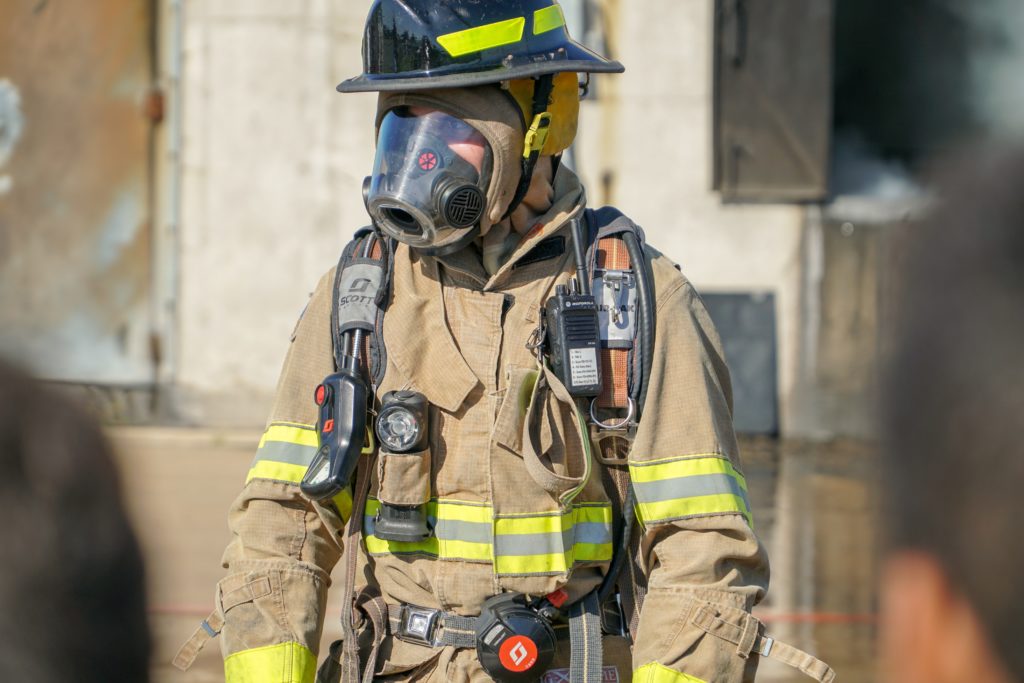
Passing Physical Ability Exams
Even if you do well in the fire academy, you’ll still need to show that you physically have what it takes to handle the job. Fighting fires involves a lot of heavy equipment, lifting, carrying, and other kinds of movement. Plus, you have to do it all in cumbersome gear and incredibly high temperatures.
The most common firefighter physical test is the Candidate Physical Ability Test (CPAT). It’s designed to ensure you can handle the demands of the job specifically. Passing it is essential if you want to become a firefighter.
Before you take the test, it’s wise to review tips for dominating the CPAT. That way, you have every advantage when it comes time to participate in the exam, increasing the odds that you’ll pass.
Passing Written Exams
If you want to snag a job as a firefighter, you also need to pass a written exam. It’s an essential firefighter requirement, ensuring you have the right knowledge to do the job well.
In most cases, the test will either be administered by a state, county, or city agency, though it could be through a private company, as well. In any case, study, study, and study some more before you take it. That way, you can hopefully pass the first time around.
The Final Firefighter Requirement – The Interview
Once the prescreening, training, and tests are done, you’re onto the last step – the firefighter job interview. It’s not unlike any other job interview. You’ll be asked questions to gauge if you’re a good fit for the job and the department. Once it’s over, the panel will decide if you’re going to be part of their team.
Yes, it’s a long road. But if your goal is to become a firefighter, meeting these firefighter requirements will ultimately be worthwhile. So, rise to the challenge. Dedicate yourself to the process. In the end, you’ll be thankful you did.


